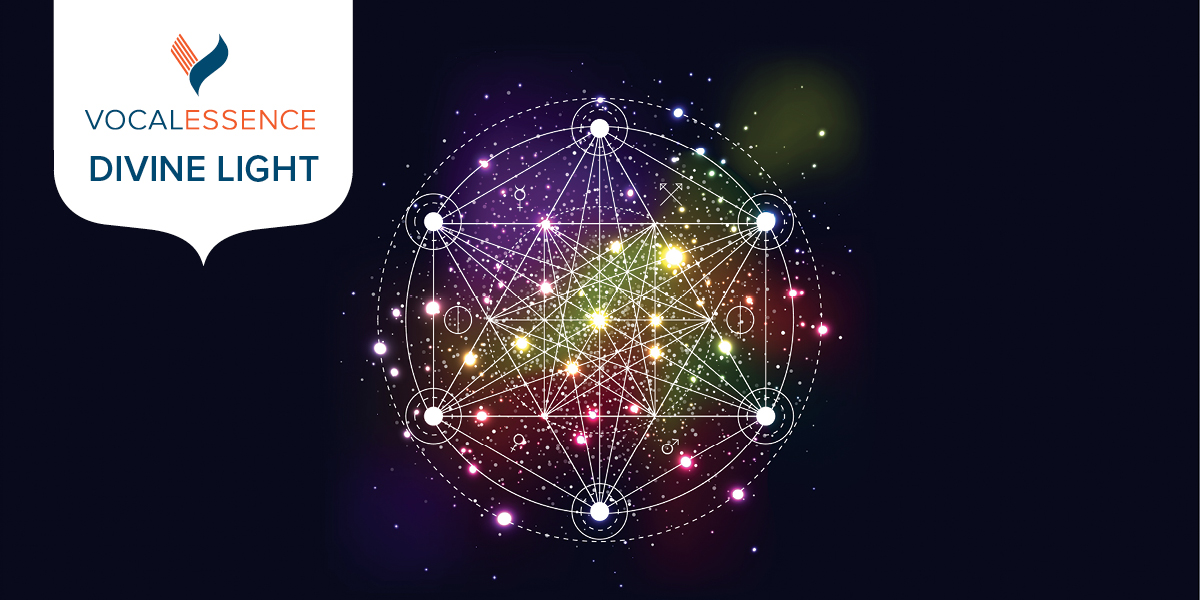
Purchase your tickets to Divine Light on Sunday, October 13, 2019 by clicking here!
A Silence Haunts Me
In 2017, Jake Runestad travelled to Vienna and found himself in the Haus der Musik Museum in Vienna, where he encountered a facsimile of Ludwig van Beethoven’s Heiligenstadt Testament. It was the first time he had read the famous text, which is almost equal parts medical history (including Beethoven’s first admission to his brothers that he was going deaf), last will and testament, suicide note, letter of forgiveness, and prayer of hope. Runestad was flabbergasted and found himself thinking about Beethoven, about loss, and about the tragedy of one of the greatest musicians of all time losing his hearing. Beethoven put it this way, “Ah, how could I possibly admit an infirmity in the one sense which ought to be more perfect in me than others, a sense which I once possessed in the highest perfection, a perfection such as few in my profession enjoy or ever have enjoyed.”
When the American Choral Directors Association offered the Raymond C. Brock Commission to Runestad for the 2019 National Conference, he took many months to settle on a topic, finally deciding on setting Beethoven’s words. “What an absolutely devastating yet inspiring account of the power of the human spirit. In the moment of his loss —when he wrote the Heiligenstadt Testament — he had no idea how profound his legacy would be.” Because of the length of the letter, a verbatim setting was impractical; Runestad once again turned to his friend and frequent collaborator, Todd Boss, to help. Boss’s poem, entitled A Silence Haunts Me – After Beethoven’s Heiligenstadt Testament creates a scena — a monologue in Beethoven’s voice for choir. The poem is both familiar and intimate; Boss has taken the fundamentals of Beethoven’s letter and spun it into a libretto that places the reader/listener into the same small, rented room as one of the most towering figures of the Romantic Era.
A Silence Haunts Me sounds more like a self-contained monologue from an opera than a traditional choral piece. Runestad sets the poetry with an intense, emotional directness and uses some of Beethoven’s own musical ideas to provide context. Stitched into the work are hints at familiar themes from the Moonlight Sonata, the 3rd, 6th, and 9th Symphonies, and Creatures of Prometheus, but they are, in Runestad’s words, “filtered through a hazy, frustrated, and defeated state of being.” In wrestling with Beethoven, with legacy, and with loss, Runestad has written a score where the poetry creates the form, where the text drives the rhythm, where the melody supports the emotional content, and where the natural sounding vocal lines, arresting harmony, and idiomatic accompaniment — in this case, piano in honor of Beethoven — come together to offer the audience an original, engaging, thoughtful, and passionate work of choral art.
Edited from the program note by Dr. Jonathan Talberg
Psalm 151
The composer John Høybye and librettist Edward Broadbridge were inspired, as many composers have been, by the Psalms of David. The last of these, Psalm 150, urges us first to use musical instruments to praise God before its final inspirational appeal to the human voice: “Let everything that has breath praise the Lord!” Psalm 151 is a new hymn of praise and thanks God for sharing his love of humanity in the gift of music. God is imagined as a violinist who wants human voices to join his celebration of Creation. Broadbridge was inspired by a book by the Archbishop of Canterbury, Rowan Williams, that attempted to unite science and religion in the metaphysical concept of cosmic–that God’s love for creation was so full that it exploded in the Big Bang. Nanoseconds before the Big Bang, God tunes his violin to perfection and begins to play his message of love to the universe.
Enjoy the second movement of this piece, entitled, “Wave upon wave.”